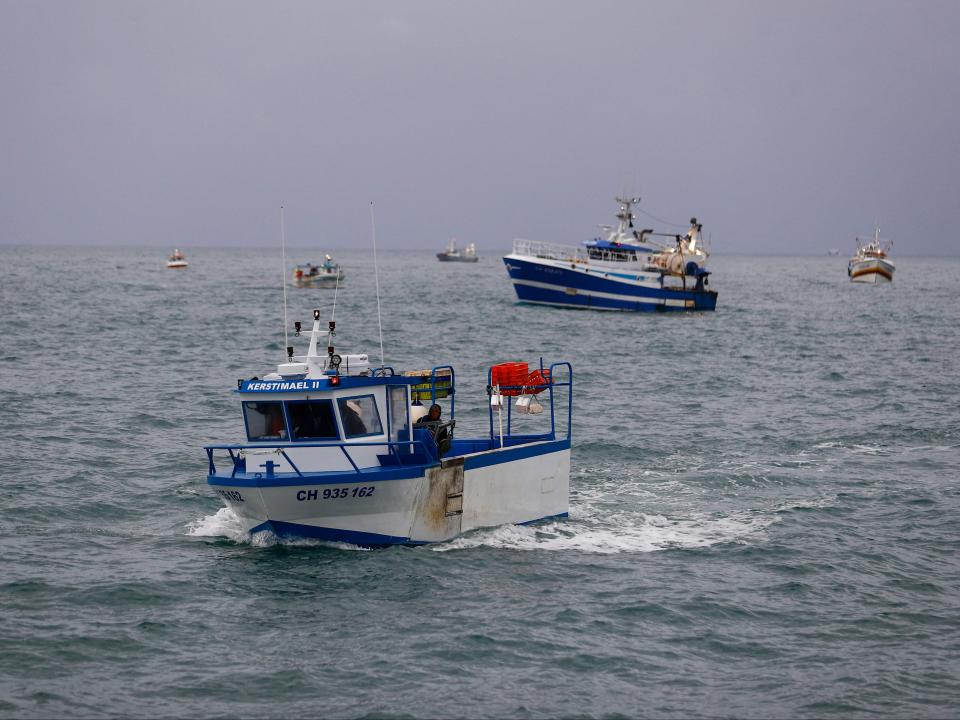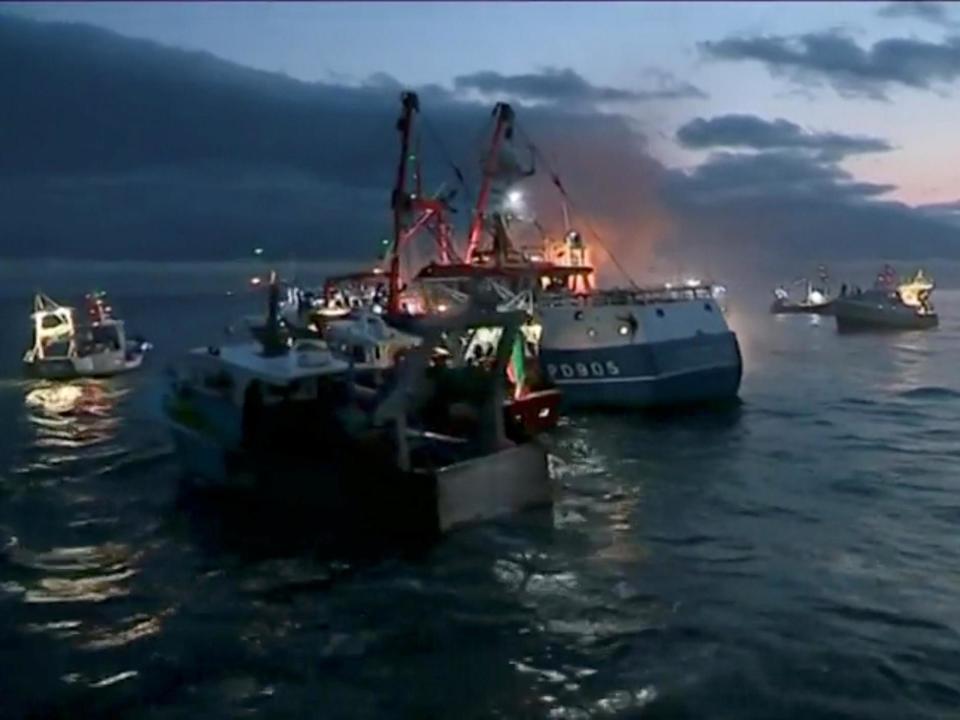Jersey protest: A brief history of British fishing feuds, from the cod wars to Brexit

A flotilla of around 60 French trawlers have descended on Jersey after threatening to blockade the port of St Helier and stop goods arriving or leaving as part of an ongoing row over post-Brexit fishing rights.
The British government has responded by sending two royal navy offshore patrol vessels, the HMS Severn and HMS Tamar, to the Channel Island as a precautionary measure after reacting angrily to what it said were disproportionate and unacceptable threats from French maritime minister Annick Girardin to cut off the island’s electricity supply.
In a phone call with John Le Fondre, chief minister of Jersey, Boris Johnson stressed the need for an urgent de-escalation in tensions and fresh dialogue on fishing access, warning that any blockade would be “completely unjustified”.
France’s fishermen are worried about their livelihoods after their pre-existing arrangements with Jersey, set out under the 2000 Granville Bay Agreement, were scrapped because of Brexit.
New fishing rules introduced by the island’s government under the UK-EU Trade and Cooperation Agreement require French boats to prove they have a history of fishing in Jersey's waters before they can be granted a permit. But it has been claimed that additional technical requirements were added without prior notice.
A spokesperson for the fishermen told BBC Radio 4’s Today programme on Thursday morning that, if the current feud is not resolved, it would “kill 70 per cent of the French fleet”.
Tensions in the English Channel last erupted in the “scallop wars” of late August 2018, when rocks, smoke bombs and other projectiles were thrown at English and Scottish vessels by French boats in the Bay of Seine off the coast of Normandy.
The skirmish was branded “clear piracy” by the Scottish White Fish Producers Association at the time, as the British boats were legally harvesting the fishing grounds when they came under attack.
That dispute arose from the fact that France only permits commercial scallop fishing between 1 October and 15 May to reduce the impact on its shellfish population, but the rule did not apply to British fishermen, who were therefore accused of “pillaging” vital supplies of what is an important regional export product by carrying on their activities outside of that seasonal window.
“The deeper issues behind the clashes should be settled by talking around the table, not on the high seas where people could be hurt,” Britain’s National Federation of Fishermen’s Organisations said at the time, appealing for calm.
Prior to that flashpoint, the previous clash took place 15 miles off the coast of Le Harve on 10 October 2012, when 40 French boats cornered their British rivals, attempting to ram them and throwing rocks and nets with a view to damaging their propellers and engines and even burning an English rugby shirt as an act of provocation, according to Channel 4 News.
The Frenchmen justified their aggression by insisting the British had drifted 12 miles inside an exclusion zone demarcated by the EU’s common fisheries policy, an accusation hotly refuted by the opposing side.
The French coast guard was criticised for failing to intervene but argued the conflict had taken place outside French territorial waters, meaning it had no jurisdiction. Both sides ultimately called on their respective navies to restore the peace and an uneasy truce abided.

But commercial fishing remains big business on both sides of the Channel and a number of other heated incidents have come to pass over the years.
The Cherbourg dispute of late March and early April 1993 saw the UK again exchanging angry words with its neighbour over crab fishing in the Channel Islands.
In the 1950s and 1970s, Britain’s enemy was Iceland in what became known as the “cod wars”, which was only slightly less tense than the age of mutually-assured destruction with which it coincided, and concerned the right to fish for cod and whitefish in the north Atlantic.
The royal navy deployed 37 warships to protect British interests during that period, a time when the Icelandic coast guard used net cutters to sever trawlers’ hauls and rifle fire was seen, indicating just how seriously the feud was taken.
Britain almost went to war with Russia over an assault on its fisherman in 1904 as a result of the Dogger Bank incident, when Russian warships mistook North Sea fisherman for hostile Japanese ships in thick fog and opened fire.
But seagoing tensions with France date back to at least the end of the Napoleonic Wars in 1815, after which French fishermen capitalised on the peace and a lack of clear laws to dominate commercial trawling along the Kent and Sussex coasts, prompting a select committee investigation in the House of Commons in 1833.
Read More
Jersey news – live: French fishing vessels gather as Royal Navy ships patrol
UK to send ships to Jersey amid fears over threat of blockade by French fishermen
UK blasts ‘unacceptable’ threats by France to cut Jersey’s electricity supply in fishing dispute

 Yahoo Finance
Yahoo Finance 